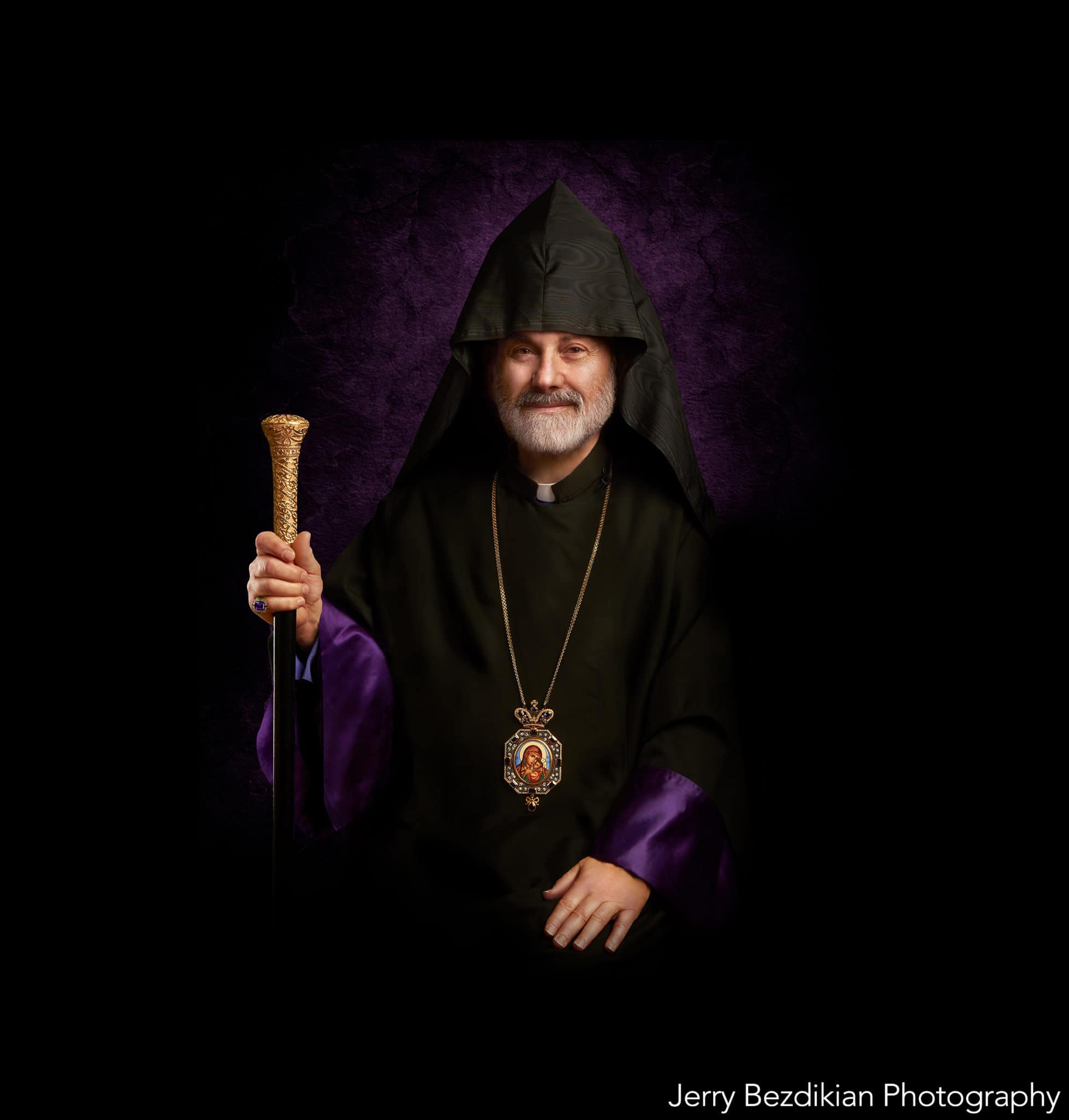The Prelate’s Sermon, November 6
Today on the ninth Sunday of the Feast of the Holy Cross, our Scriptural reading is from the Gospel of St. Luke 8:49-56. One day, as our Lord Jesus Christ is teaching, a leader of the local synagogue, whose name is Jairus, beseeches Him to come to his house, and to heal his only daughter. On His way to the home of Jairus, our Lord’s journey is interrupted as He heals a woman who has been suffering from a blood disorder for twelve, painful years. Just then, the sad news arrives from Jairus’ house that the daughter has passed away. Our Lord comforts the inconsolable father by saying, “Do not fear. Only believe, and she will be saved.” Arriving at Jairus’ home, Jesus consoles those who were weeping and wailing, telling them that “the girl is not dead, but sleeping”, and entering the girl’s room with His three disciples and the parents, Jesus takes hold of the hand of the girl and says, “Talitha, cumi!” which means, “Young girl, rise to me!” The evangelist narrates how the girl’s spirit returned to her, and that she arose at once. Jesus then directs the parents to give her something to eat and instructs them to tell no one what has happened.
This passage, as much as it is fascinating, is full of details which enrich our faith, and brings us closer to our Lord Jesus Christ. Hence, I would like to share the following thoughts.
- The delay of our Lord Jesus Christ in healing the daughter of Jairus, intentionally or not, just as it happened in the case of Lazarus (John 11), was beneficial. Jesus, by continuing His preaching, wished to teach us that the living Word of God is the priority. Illnesses, even death, are related to our physical existence, while the impact of the Word of God transcends all worldly conditions. By delaying His visit, Jesus wished also that His followers and the crowd may witness a miracle beyond their expectation. Thus, the providential care became more evident.
- When Jesus said, “Do not be afraid, the girl will live,” it was a positive echo of His great statement: “I am the Resurrection and the Life” (Jn 11:25). Jesus, as the Loving and Caring Son of God, as well as a true Teacher, Healer and our Brother by human nature, brings us the greatest message that as the Source of Life, He is always ready to grant us the fullness of life, here and after.Often, when we face the death of a beloved one, we may doubt the validity of this statement, especially when death knocks at the door of our young ones. We do pray and ask for Divine intervention, and when our expectation does not receive an immediate reply, our faith starts to shake.
If we try to understand the promise of our Lord within worldly and time limits, indeed we are pitiful and have not perceived the depth of the Divine Gift. The martyrdom of the saints is the most tenable proof that while they faced death, they were not afraid of death, but embraced it, for they were sure that they would enjoy the blessings of an unperishable life. This is indeed a fabulous truth.
- Along with granting life to the daughter, Jesus directed the parents to give her something to eat. This is yet another example that God takes care of us more than we think. No one witnessing that incredible miracle of the restoration of life would stop to think about feeding the girl. God’s care is indeed beyond our comprehension. If in the Dominical prayer where the sanctity, the kingdom, and the will of God are the supreme requests to be beseeched, and thereafter Jesus teaches us to ask our daily bread, this is a monumental sign of how God cares for our intellectual, and spiritual, as well as of physical welfare.
- The instruction given to the parents to tell no one what had happened, which repeatedly Jesus gives following other miracles, is quite perplexing to our understanding. No doubt that after witnessing such an incredible miracle, the parents would wish to spread the good news as the Master Himself had taught, “a city set on a hill cannot be hid, neither do men light a lamp, and put it under the bushel” (Mt 5:14-16). Nevertheless, our Lord had also emphasized not to anchor our faith on miracles, but instead to ascribe all Good Works directly to God (see Jn 6:26), otherwise our faith can resemble like the seeds fallen on rocks or in thorns, which didn’t bear grain (Mk 4:14-20)
Having been instructed with this great teaching of life and death, and knowing the supreme care of our heavenly Father, let us thank and praise Him, with His Only-begotten Son and life-giving Holy Spirit. Amen.

